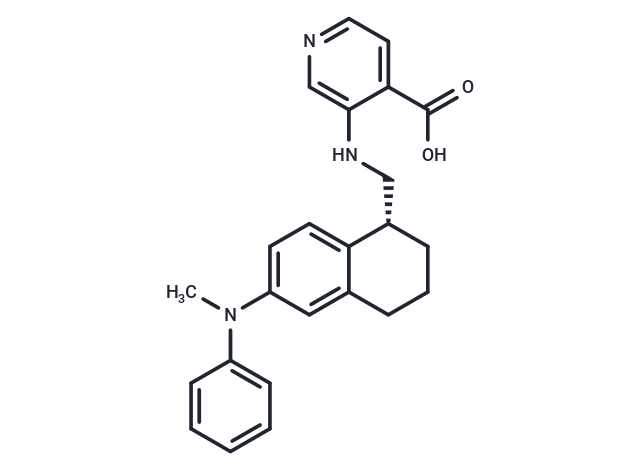Shopping Cart
- Remove All
 Your shopping cart is currently empty
Your shopping cart is currently empty

QC6352 is a selective and effective KDM4C inhibitor (IC50: 35 nM).

| Pack Size | Price | Availability | Quantity |
|---|---|---|---|
| 25 mg | $1,520 | 3-6 months | |
| 50 mg | $1,980 | 3-6 months | |
| 100 mg | $2,500 | 3-6 months | |
| 1 mL x 10 mM (in DMSO) | $434 | 3-6 months |
| Description | QC6352 is a selective and effective KDM4C inhibitor (IC50: 35 nM). |
| Targets&IC50 | KDM4C:35 nM |
| In vitro | QC6352 is an effective KDM4C inhibitor (IC50: 35±8 nM). QC6352 blocks the proliferation and self-renewal of BCSCs. In a concentration-dependent manner QC6352 dramatically decreases the anchorage-independent sphere-forming capacity of BCSC1 and BCSC2. The protein levels of (Epidermal growth factor receptor) EGFR are reduced in both BCSC1 and BCSC2 upon treatment with QC6352 [1][2]. |
| In vivo | QC6352 significantly inhibits tumor growth and final tumor weight in both BCSC1 and BCSC2 xenografts. The treatment is well tolerated, with no impact on mice body weight. Administration of the KDM4 inhibitor QC6352 effectively blocks BCSC xenograft tumor growth [2]. |
| Molecular Weight | 387.47 |
| Formula | C24H25N3O2 |
| Cas No. | 1851373-36-8 |
| Relative Density. | 1.243 g/cm3 (Predicted) |
| Storage | Powder: -20°C for 3 years | In solvent: -80°C for 1 year | Shipping with blue ice. | ||||||||||||||||||||||||||||||
| Solubility Information | DMSO: 25 mg/mL (64.52 mM), Sonication is recommended. | ||||||||||||||||||||||||||||||
Solution Preparation Table | |||||||||||||||||||||||||||||||
DMSO
| |||||||||||||||||||||||||||||||

Copyright © 2015-2025 TargetMol Chemicals Inc. All Rights Reserved.